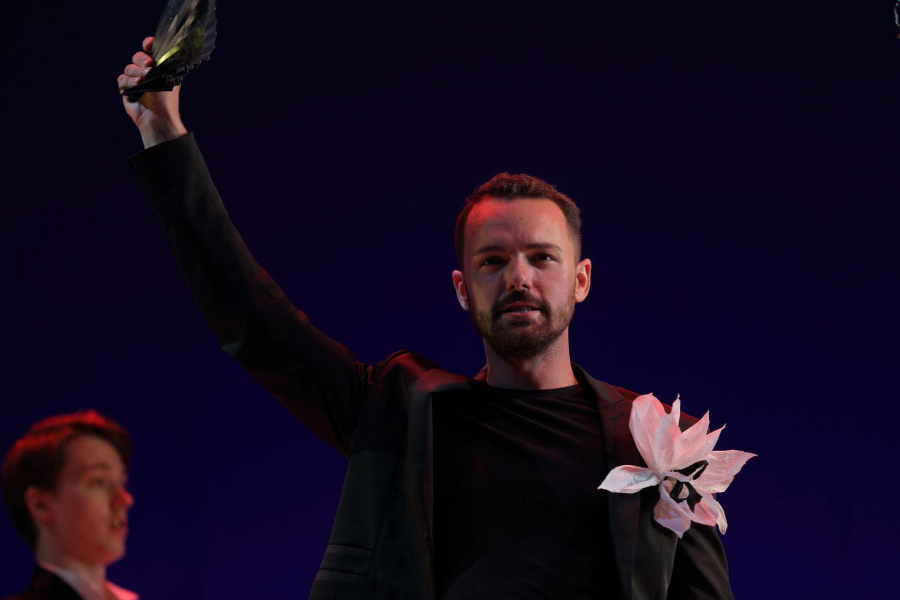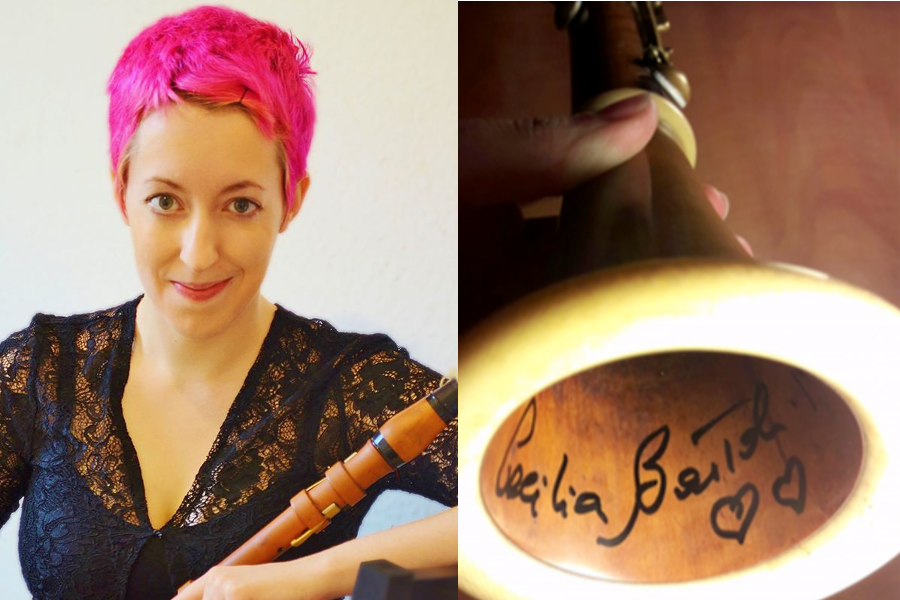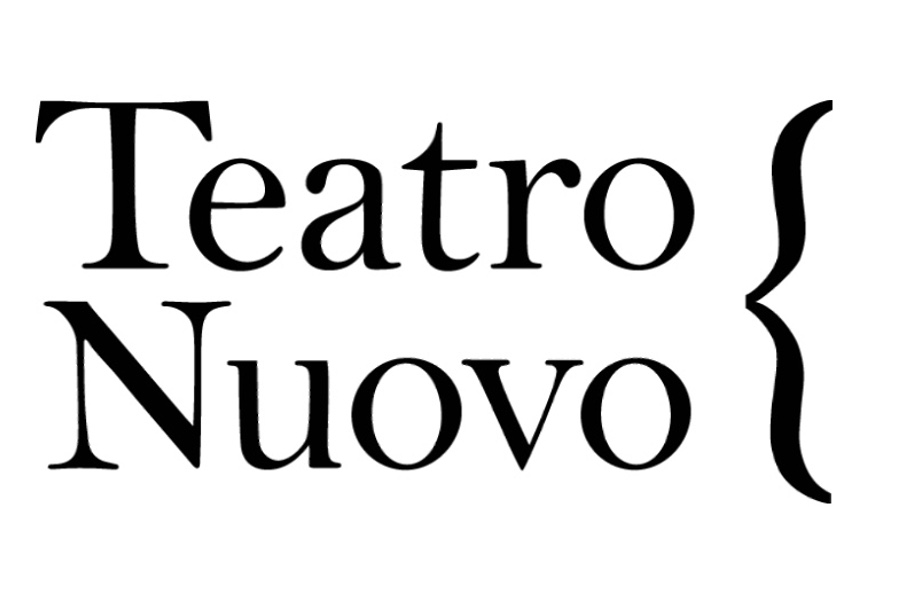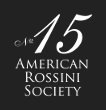Dec 2 : Inspired by Rossini’s father?
Rossini’s father was a horn player, perhaps the composer was inspired by playing he heard at home? Many thanks to the Danish music writer and lecturer, Henrik Engelbrecht for this link. Engelbrecht, a Danish author and lecturer was the inspiration for our musical advent calendar; a few years ago he featured one with tenors which was a pure delight.
Dec 1: An overture like no other
In Rossini’s day people often became familiar with his works through piano adaptations played in a home. Czerny arranged this masterpiece but not likely for a performance in a private home! You may spot some pianists you recognize!
Interview with American Baritone Dean Murphy

American singers have been infrequent participants in the Accademia Rossiniana, but this summer a delightful young baritone, Dean Murphy, a Boston area native, was there and became an audience favorite in his two appearances in the ever popular “Il Viaggio a Reims”. Dean graciously offered to answer some questions for us about his background and career. Read More
Website for Alberto Zedda – legendary Rossini conductor and scholar
Fans of Rossini know the name Alberto Zedda. Those who are unfamiliar and interested in Rossini should find out more about the man and how much he contributed to the music world.
Now there’s a website where all can learn more. Text (in Italian – use google translate if needed), photos, audios – it’s a wonderful tribute.
Interview with clarinetist and “Fidelio” podcaster Marie Ross

Marie Ross, whose popular Fidelio Podcast may be known to some ARS members, graciously agreed to take time out of her busy schedule to answer some questions related to her passion for original instruments, Rossini, and her career in general. The episodes of the Podcast are eclectic. Of particular interest is her “My year of living dangerously, 4 Rossini operas in one year”. Read More
Teatro Nuovo’s Way With Bel Canto: Bellini’s Stranger and Rossini’s Magpie

Thank you Charles Jernigan for allowing us to share this review!
Bellini’s La Straniera (The Stranger) July 13, 2019
Rossini’s La gazza ladra (The Thieving Magpie) July 14, 2019
Teatro Nuovo at Purchase College, New York
Last year, conductor/teacher/impresario Will Crutchfield introduced a new enterprise in his long history with bel canto opera. He called it “Teatro Nuovo”—the “New Theater,” and its noble intent was (and remains) an American training ground for historic performance practices in the operatic bel canto repertory. Using period instruments, the orchestra (about 50 players) learned to collaborate with the singers onstage and to perform without a conductor, instead using as leaders the First Violin (also called the Head of the Orchestra) and the maestro al cembalo, the “maestro at the keyboard.” The latter role was usually assumed by the composer himself at the opening performances of a new opera. The arrangement of the instrumentalists is also “nuovo” for our time, but in accord with the way it was in the early nineteenth century (the primo ottocento of Rossini, Bellini, Donizetti and their fellows). Thus, “communication between the singers and the orchestra” becomes Read More
Rossini Opera Festival dedicates 40th anniversary festival to Bruno Cagli and Montserrat Caballé

This year, the Rossini Opera Festival celebrates its 40th anniversary.
In a nod to its storied history the directors of the Festival are dedicating it to Montserrat Caballé and Bruno Cagli. Caballé is of course a legendary figure in the opera world, while Cagli is less known outside Italy. However Cagli’s impact on the Rossini Renaissance is formidable.
Gianfranco Mariotti who is himself a crucial figure in guiding Rossini’s out of obscurity commented about this dedication: “Bruno Cagli was an absolute protagonist of the Rossini Renaissance and the last member of the legendary Triad of the Rossini Foundation. I shared with Bruno, inside and outside the ROF, the whole long adventure of the rediscovery of the forgotten Rossini and I lived with him over the years joys and sorrows, disappointments and successes. I remember him with affection and nostalgia.”
The present president of the Rossini Opera Festival, Daniele Vimini, observed : “From the beginning Bruno Cagli was a fundamental figure in the rediscovery of Gioachino Rossini’s musical heritage, both as a member of the Editorial Board of the Rossini Foundation (with Alberto Zedda and Philip Gossett) He was also, for a year, an artistic consultant of the ROF before the arrival of Alberto Zedda, after which he dedicated all his unparalleled expertise to the Rossini Foundation.”
Cellos in Rossini’s day, reflections by Hilary Metzger
Last summer, Hilary Metzger played continuo and led the cello section in Teatro Nuovo’s production of Tancredi, under the direction of Will Crutchfield (at the keyboard) and Jakob Lehman (as concertmaster). She’ll be back for this summer’s upcoming production of La gazza ladra, for which the orchestra will again be playing on period instruments and experimenting with historical performance practices and orchestral seating plans. Here, she reflects on the issues raised by such performances of Rossini’s operas in the light of the historical evidence. Read More
Brownlee shines in Washington Concert Opera’s Zelmira
We thank Charles Jernigan for this comprehensive review!
Zelmira is one of the least known of Rossini’s 39 operas. It had its premiere on 16 February, 1822, at the San Carlo Opera House in Naples, the last of the Rossini operas premiered there. Rossini had been under contract with Domenico Barbaja, impresario of the San Carlo, since 1815 and had composed nine operas for the Parthenopean city (as well as nine operas for other cities during the seven year period). Zelmira was a great success with the public, and the critics generally found it the most advanced and orchestrally complex of Rossini’s works; he wrote it with an eye to a coming production in Vienna, the city of Beethoven. Barbaja had assumed direction of the Theater am Kärntnertor and had planned to offer a three month Rossini Read More

